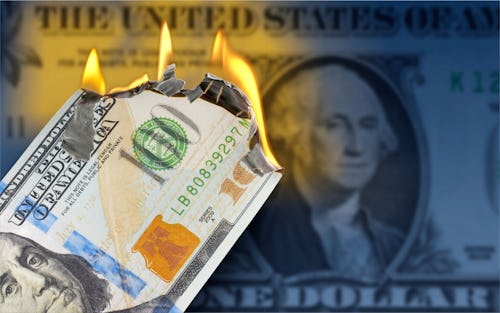
The concept of an installment plan isn’t anything new, but the pandemic saw an explosion of “buy now pay later” brands, glamorized with the BNPL initialism. They’re great when you want to soften the blow of a big old purchase but not so great when they enable bad spending habits, tank your credit, and lack the consumer protections that genuine credit lenders have. On Thursday, SF Gate published an absolutely harrowing article about how these brands have capitalized on Gen Z. The stats are damning: 43 percent of Gen Z users have missed at least one payment, according to a survey by the polling site Piplsay.
In July 2021, the Consumer Financial Protection Bureau, in a warning to consumers, cited a Credit Karma survey that 42 percent of Americans had used BNPL services at least once, 38 percent had missed a payment, and 73 percent of those payment-missers had seen their credit score drop. But the services have been glamorized by influencers on TikTok, whose nonchalant BNPL shoutouts in haul videos may inadvertently punt shoppers into a deep, dark debt hole. In a report provided to SF Gate by Afterpay, 73 percent of Gen Z consumer spending is on fashion.
Stores pay to keep BNPL services around because they keep customers spending. Instead of ripping the band-aid and forking over the $400 for your Shein haul or Peloton or whatever, you can spread it over several payments, sometimes without interest. Retailers usually pay the BNPL a small percentage of the transaction, just like they do with credit cards. Stores love ‘em because they make customers spend more, and customers love ‘em because they let you splurge before payday.
Meet the players —
Based on a June 2021 fundraising round, Stockholm-based Klarna is valued at a whopping $45.6 billion. It’s got 90 million users and operates amidst a slew of competitors like Affirm and Afterpay, which was acquired by the mobile payment company Block, formerly known as Square, for $29 billion in January. PayPal bought the company Paidy for 2.7 billion.
A credit card by any other name
—
For most BNPL services, you don’t need to submit a big, formal application like you’d have to for a new credit card. Instead, you download an app and receive approval on a purchase-by-purchase basis. There’s less waiting, less friction, and less paperwork getting in between you and your new items. Some services report missed payments to credit bureaus, but few are reporting successful repayment histories, meaning that BNPL isn’t a great way to build credit. Afterpay has faced federal class-action lawsuits in both California and Maine alleging that the company did not properly convey the fees behind its service.
Some experts are calling for further regulation. Adam Wright of the California Department of Financial Protection and Innovation told Pew that BNPL services “are loans, and they should be regulated by someone like us, under a law that has more protections for consumers."







